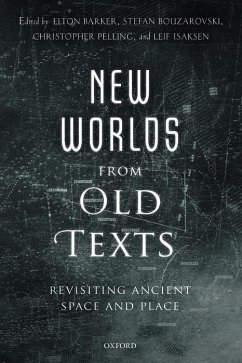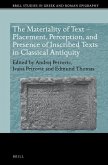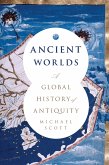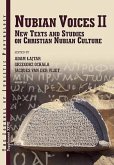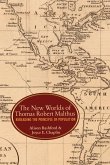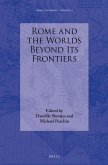Maps dominate the modern sense of place and geography. Yet, so far as we can tell, maps were rare in the Greco-Roman world and, when mentioned in sources, are mistrusted and criticized. Today, technological advances have brought to the fore an entirely new set of methods for representing and interacting with space. In contrast to traditional 'topographic' perspectives, the territorial extent of economic and political realms is increasingly conceived though a
'topological' lens, in which the nature and frequency of links among different sites matter more than the physical distances between them.
New Worlds from Old Texts focuses on the ancient Greek experience of space, conceived of in terms of both its literature and material culture remains, and uses this to reflect on modern thinking. Comprising twelve chapters written by a highly interdisciplinary range of contributors, this edited collection explores the rich array of representational devices employed by ancient authors, whose narrative depictions of spatial relations defy the logic of images and surfaces that dominates
contemporary cartographic thought. The volume focuses on Herodotus' Histories_a text that is increasingly cited by Classicists as an example of how ancient perceptions of space may have been rather different to the modern cartographic view_but also considers perceptions of space through the lens
of other authors, genres, cultural contexts, and disciplines. In doing so, it reveals how a study of the ancient world can be reinvigorated by, and in turn help to shape, modern technological innovation and methods.
Hinweis: Dieser Artikel kann nur an eine deutsche Lieferadresse ausgeliefert werden.
'topological' lens, in which the nature and frequency of links among different sites matter more than the physical distances between them.
New Worlds from Old Texts focuses on the ancient Greek experience of space, conceived of in terms of both its literature and material culture remains, and uses this to reflect on modern thinking. Comprising twelve chapters written by a highly interdisciplinary range of contributors, this edited collection explores the rich array of representational devices employed by ancient authors, whose narrative depictions of spatial relations defy the logic of images and surfaces that dominates
contemporary cartographic thought. The volume focuses on Herodotus' Histories_a text that is increasingly cited by Classicists as an example of how ancient perceptions of space may have been rather different to the modern cartographic view_but also considers perceptions of space through the lens
of other authors, genres, cultural contexts, and disciplines. In doing so, it reveals how a study of the ancient world can be reinvigorated by, and in turn help to shape, modern technological innovation and methods.
Hinweis: Dieser Artikel kann nur an eine deutsche Lieferadresse ausgeliefert werden.

